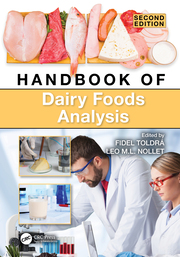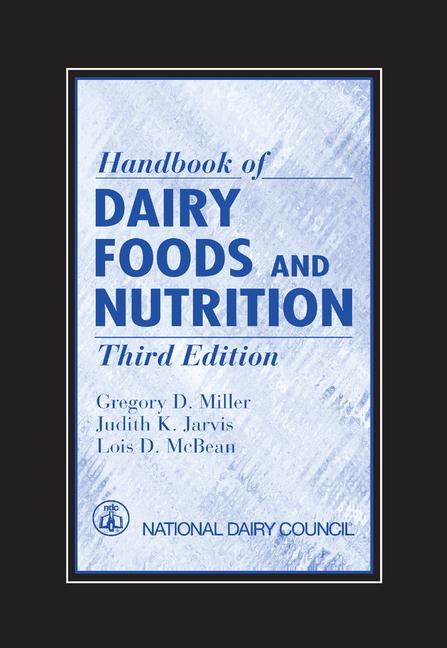Dairy Foods Research Centers network celebrates 35th anniversary
Dairy Management Inc. (DMI) provides the structure and oversight for more than 20 universities that comprise the network’s six regionally based centers.

The Dairy Foods Research Centers network – created to provide innovative, science-backed solutions related to consumer demand and business needs and trends – is celebrating its 35-year anniversary.
Dairy Management Inc. (DMI) provides the structure and oversight for more than 20 universities that comprise the network’s six regionally based centers. This system has supported more than 400 dairy industry companies with research-based solutions related to processing, food quality and safety, ingredients and other areas.
Emil Nashed, executive vice president of research and product development for DMI, said U.S. dairy farmers deserve credit for their longtime commitment to funding research through their checkoff.
“Dairy farmers had the foresight 35 years ago to help secure a bright future for the industry by establishing this research network to provide sustainable innovations and solutions based in sound science,” Nashed said. “We have a first-class network filled with passionate people who are working together on industry challenges and launching the dairy industry into new horizons.”
The network’s six centers comprise the California Dairy Innovation Center; Midwest Dairy Foods Research Center, Northeast Dairy Foods Research Center, Southeast Dairy Foods Research Center, Western Center for Dairy Research and the Wisconsin Center for Dairy Research.
While each center functions individually and with its own area of dairy-focused expertise, they come together through regular DMI-led meetings and various other touchpoints during the year. A sense of camaraderie has formed, said Veronique Lagrange, who serves as director of the California Dairy Innovation Center.
“What I find to be wonderful about the research center network is we have multiple locations across the country with such a broad range of expertise,” Lagrange said. “There’s not a week that goes by when we don’t reach out and say, ‘I’m dealing with an issue,’ or ‘I have this idea’ and we know we can call on someone within the network. We collaborate very, very closely in multiple ways. We don’t duplicate work, but we build off each other’s expertise.”
Innovation and support with artisanal and specialty cheese companies has been a key network success. Specialty cheese production in the 1980s accounted for about 3 percent or less of national cheese production. Today, the U.S. is producing 1.8 billion pounds of artisan/specialty cheese each year and it accounts for more than 13 percent of U.S. cheese production.
The innovation has led to international acclaim. In 2016, Roth Grand Cru Surchoix, made by Emmi Roth USA, was named overall champion of the 2016 World Championship Cheese Contest. Three years later, a blue cheese from Oregon’s Rogue Creamery became the first American-made product to earn the highest honor at the World Cheese Awards.
John Lucey, who has served as director of the Wisconsin Center for Dairy Research for the last 11 of his 22 years with the university, has led cheese innovation that has sparked this explosion. Lucey said his team has become a go-to resource for cheesemakers of all sizes, from small operations all the way to some of the industry’s largest companies, including Saputo, Foremost, Hilmar, Grande, Bel Brands, Lactalis, Glanbia, Sargento, Great Lakes Cheese and others.
“At our lab, we focus a lot on cheese’s functionality, which is the ability to incorporate it into a variety of purposes by changing the ways it melts, stretches, the rate at which it might burn and even its color,” Lucey said. “The mastery of this research has been transmitted to manufacturers and it has resulted in cheese successfully being used well beyond pizza and into pasta products, baked goods, frozen food, hors d'oeuvres and many other delicious applications.”
Bill Graves, senior vice president of product research for DMI, said another network success has been leveraging its expertise to assist the checkoff-founded U.S. Dairy Export Council and companies that sell their products overseas. Network-led research has focused on technical aspects, such as improved functionality of powdered milk products and conducting research on extended shelf life, so U.S. products maintain their appeal and quality once they reach their international destination.
“To successfully secure international access, you first must understand the many nuances that exist to get dairy into this marketplace,” Graves said. “There are many considerations to adapt dairy foods to meet different palates, uses and customs that exist in other countries. Our research center is adept at addressing these challenges and turning them into opportunities. We want the U.S. to be the preferred supplier to these markets.”
Looking for a reprint of this article?
From high-res PDFs to custom plaques, order your copy today!







